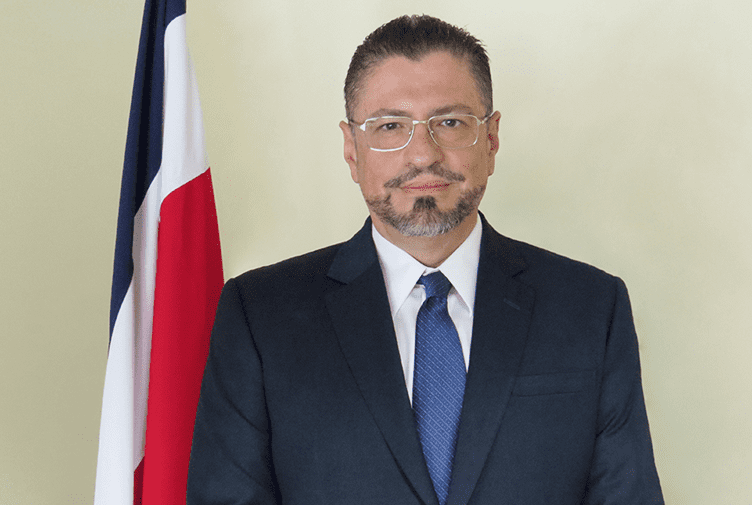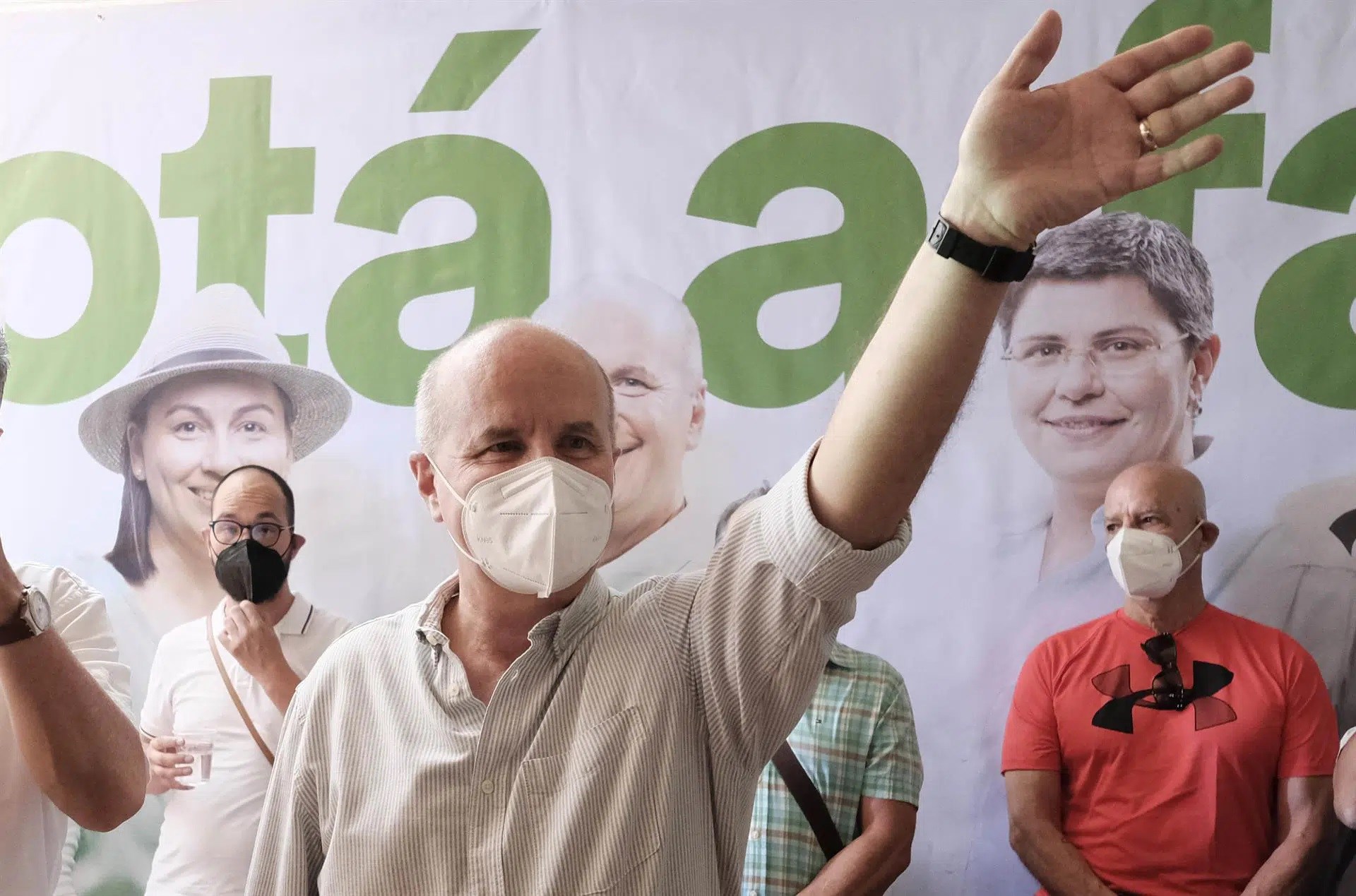5 de abril 2022

Children of Exile: The Births “Sowing Hope” in the Camp of Nicaraguan Farmers

PUBLICIDAD 1M
PUBLICIDAD 4D
PUBLICIDAD 5D
Economist Chaves defeated rival Jose Maria Figueres, who received 47.1% of the vote. The turnout was 57.2% of the regiestered voters.

On Sunday, April 3, Costa Rica elected economist Rodrigo Chaves Robles as their new president, in a runoff election. Chaves, who will become the country’s 49th president, won with a campaign centered on promises of “change” and a head-on fight against corruption.
Chaves, backed by the recently formed center-right Social Democratic Progress Party, received 52.9% of the vote, giving him a clear victory over rival Jose Maria Figueres, with 47.1%. Figueres had served as President of Costa Rica from 1994-1998, and was the candidate for the National Liberation Party, or PLN [Partido de Liberacion Nacional]. Voter turnout was 57.2% of the registered voters.
The President elect declared that he received today’s election results “with humility”, and accepted this “enormous responsibility, full of challenges and difficulties that we’re going to solve.”
The economist thanked the Costa Rican people for “having come out for a democratic event that make us shine before the world, as one of the best democracies.”
Costa Rica’s new president faces the great challenge of governing with a bloc composed of only 10 deputies of the 57 that make up Costa Rica’s congress.
The new leader will have to negotiate with the other five parties represented in the Costa Rican Congress, especially Figueres’ PLN which holds the largest single bloc, with 19 seats.
Chaves will take power on May 8, and serve a four-year term. He replaces Carlos Alvarado from the center-left Citizen Action Party. Chaves served under Alvarado as Interior Minister for 6 months, between 2019 and 2020.
President Alvarado spoke by telephone to the new president-elect, “to express my congratulations, begin an orderly transition process, and extend my best wishes in the tasks he will face as Costa Rica’s President number 49.”
“Congratulations Costa Rica, for this new democratic election event!” President Alvarado declared.
Chaves, an economist by profession, has proposed reducing the size of the State, cutting social burdens and relaxing hindrances to investment and business ventures. However, his message has centered on the promise of a direct fight against corruption, which he blames on the traditional parties like the National Liberation Party of Figueres, his former rival.
Chaves served as interior minister for six months between 2019 and 2020. Previous to this he held several positions in the World Bank, where in 2019 he received an internal sanction after several female colleagues filed accusations of sexual harassment against him.
Chaves, 60, concentrated his political campaign on criticizing “the same [political figures] as always”, and the traditional parties, like the one his rival represented, which he accused of corruption.
He also had some conflicts with the press, which he accused of being biased after several press outlets published information about the charges of sexual harassment filed against him when he worked at the World Bank, and about possible parallel structures in his campaign financing.
The economist, who is married and has two daughters, promised in his campaign to work to make Costa Rica “the happiest country in the world”, to fight corruption, and to govern on behalf of the poorest sectors.
“Now it falls on us to fulfill our responsibility. Failing Costa Rica isn’t an option. Costa Rica needs us all,” Chaves expressed.

Jose Maria Figueres casting his vote in the April 3 Costa Rican elections. Photo: Confidencial / EFE
Former president Jose Figueres conceded his defeat, thanked his sympathizers, and promised to help “rescue” the country. He asked his supporters to leave “the messages of hate” behind.
“Costa Rica has voted and the people have spoken. As democratic leaders, we will always be respectful of that decision. I congratulate Rodrigo Chaves and I wish him the best,” Figueres said in his concession speech.
He added that Costa Rica “is experiencing a deep crisis”, a “state of emergency”, and offered his help in this.
“We had, and we continue to have, every intention of helping rescue Costa Rica, assuring that the human rights of all its people are respected. (…) It’s the moment to leave behind the messages of antagonism, hate and division in the Costa Rican family and to advance together, putting aside our differences,” Figueres declared.
A total of 3.5 million Costa Ricans were called upon to cast their ballots in one of 2,151 polling places that opened at 6 am on Sunday, April 3, and closed at 6 pm.
The Organization of American States’ Electoral Observation Mission highlighted the order and organization with which the runoff presidential election transpired on Sunday.
“We’ve seen that everything proceeded in an organized manner; we have no reports of any anomalies,” declared Isabel Saint Malo, head of the OAS electoral mission, during a visit to a polling place in San Jose. Ms. Saint Malo was formerly Panama’s vice president and also a former Minister of Foreign Affairs.
The first-round Costa Rican election was held on February 6, with a historic abstention rate of 40%. During the lead-up to the final round, the Costa Rican Electoral Council, the candidates and the media emphasized the importance of the population’s turning out to vote.
For the runoff vote, Costa Rican health authorities relaxed the public health measures set up to guard against Covid-19. The political parties were allowed to use the areas located outside the voting centers to set up canopies, as well as to allow electoral guides to accompany older people and voters with disabilities.
The 6-foot social distancing rule and the obligatory hand-washing were also relaxed during the voting. However, masks were still required, given that the pandemic still persists in Costa Rica.
This article was originally published in Spanish in Confidencial and translated by Havana Times
PUBLICIDAD 3M
Agencia de noticias internacional con sede en Madrid, España. Fundada en Burgos durante la guerra civil española en enero de 1939.
PUBLICIDAD 3D